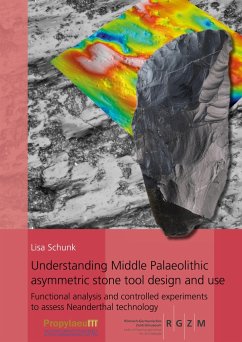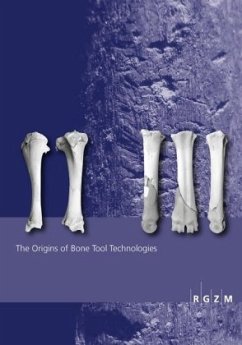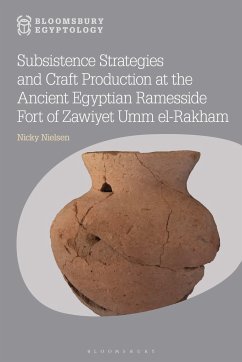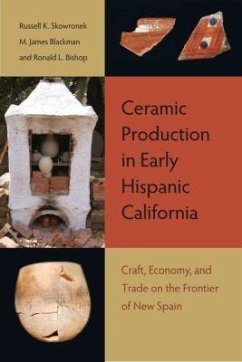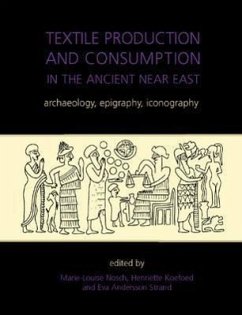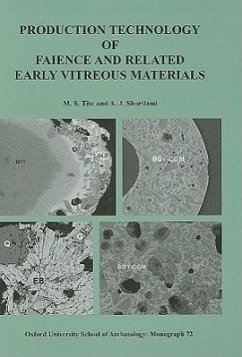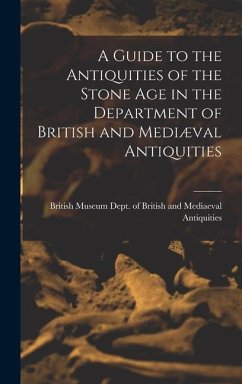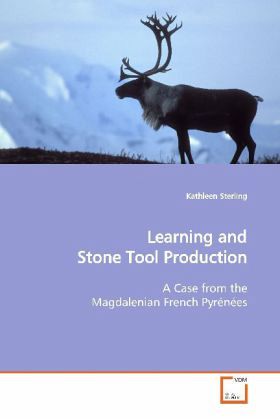
Learning and Stone Tool Production
A Case from the Magdalenian French Pyrénées
Versandkostenfrei!
Versandfertig in 6-10 Tagen
45,99 €
inkl. MwSt.

PAYBACK Punkte
23 °P sammeln!
This study investigates the everyday practices of individuals in the production of stone-tooltechnology in the Magdalenian Midi-Pyrénées, throughvarious theoretical approaches to agency andlearning. It focuses on the sites of Enlène andLes Eglises, both located in the French Pyrénées,occupied during the Middle (c. 13,900 BP) and Upper(c. 11,850 BP) Magdalenian, respectively. Materialcultures such as stone tools, are made and usedwithin a social milieu encompassing practical needs,cultural preferences, and the social identities ofthe people in the group. Stone tools may beproduced in a ver...
This study investigates the everyday practices of
individuals in the production of stone-tool
technology in the Magdalenian Midi-Pyrénées, through
various theoretical approaches to agency and
learning. It focuses on the sites of Enlène and
Les Eglises, both located in the French Pyrénées,
occupied during the Middle (c. 13,900 BP) and Upper
(c. 11,850 BP) Magdalenian, respectively. Material
cultures such as stone tools, are made and used
within a social milieu encompassing practical needs,
cultural preferences, and the social identities of
the people in the group. Stone tools may be
produced in a very simple manner that can address any
practical needs, but cultural preferences complicate
the techniques and styles of stone tool production.
Members of Paleolithic societies had to learn how to
produce tools that satisfied both functional and
social requirements. While learning how to produce
stone tools, novices also learned therules and roles
of flintknappers in their culture through
observation, imitation, guidance, experimentation,
and practice. This study seeks the evidence for these
behaviors, to create a more nuanced picture of
Paleolithic societies.
individuals in the production of stone-tool
technology in the Magdalenian Midi-Pyrénées, through
various theoretical approaches to agency and
learning. It focuses on the sites of Enlène and
Les Eglises, both located in the French Pyrénées,
occupied during the Middle (c. 13,900 BP) and Upper
(c. 11,850 BP) Magdalenian, respectively. Material
cultures such as stone tools, are made and used
within a social milieu encompassing practical needs,
cultural preferences, and the social identities of
the people in the group. Stone tools may be
produced in a very simple manner that can address any
practical needs, but cultural preferences complicate
the techniques and styles of stone tool production.
Members of Paleolithic societies had to learn how to
produce tools that satisfied both functional and
social requirements. While learning how to produce
stone tools, novices also learned therules and roles
of flintknappers in their culture through
observation, imitation, guidance, experimentation,
and practice. This study seeks the evidence for these
behaviors, to create a more nuanced picture of
Paleolithic societies.



